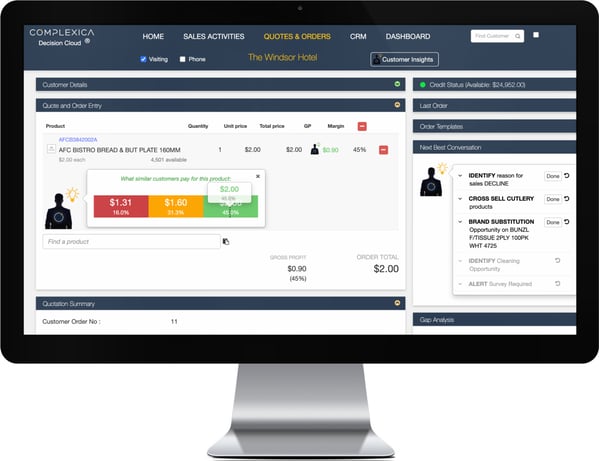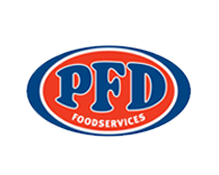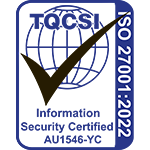Order Management System | Inventory Management System
Order management systems are essential tools for businesses in the modern world. They help with managing orders, tracking inventory and processing payments. This article will discuss how an order management system can benefit a business and its customers.
Order management systems provide numerous benefits to businesses of all sizes. By automating processes such as ordering, payment processing, tracking, billing and invoicing they significantly reduce manual labor costs while increasing efficiency and accuracy. Additionally, they enable businesses to track customer orders from start to finish; providing real-time updates on stock levels, shipping status and delivery times.
Finally, order management systems also provide customers with an enhanced shopping experience. Customers have access to detailed information about their orders at any time which allows them to better manage expectations when it comes to delivery times etcetera. In addition, these systems allow for quicker checkout procedures by allowing customers to securely save their payment details for future orders.
What Is An Order Management System (Oms)?
An order management system (OMS) is an automated software solution for managing orders, inventory and customer data. It helps businesses streamline their operations by automating the life cycle of ordering processes from start to finish. OMS systems typically include features such as order processing, fulfillment tracking, returns management and analytics tools that provide insights into key performance indicators such as sales volume per product or service.
What is the primary benefit of using an Order Management System (OMS)?
The primary benefit of using an OMS is increased efficiency and accuracy in order processing which leads to higher levels of customer satisfaction. An effective OMS can help simplify business processes related to order entry, payment processing, shipping & delivery, invoice generation and more. Additionally, with a comprehensive OMS, businesses are better able to track inventory availability across multiple selling channels while also providing visibility into the status of each individual order throughout its lifecycle—from initial inquiry to final delivery.
By leveraging modern technologies such as artificial intelligence (AI), predictive analytics and machine learning-based algorithms, organizations can use their OMS solutions to scale up their existing operations while simultaneously improving overall customer experience through faster turnaround times on orders and improved accuracy in fulfilling requests. This results in satisfied customers who are likely to come back for future purchases—a win-win situation for both sides!
How Does An Order Management System (Oms) Work?
An order management system (OMS) is a powerful tool used to streamline the ordering process. It provides businesses with an efficient way to manage customer orders, from receiving and tracking them through shipping options, in real time. OMSs automate manual processes such as entering data into databases and checking for errors that might occur during the ordering process. By automating these tasks, companies can save money on labor costs and improve their customers’ experience.
What is the primary purpose of an Order Management System?
The primary purpose of an OMS is to help businesses better organize their inventory and pricing information across multiple channels so they can optimize their products or services more quickly. Additionally, the software can be customized to meet specific needs based on how complex or simple the business’s product or service delivery structure is. With customization capabilities, OMS can provide tailored solutions that are designed specifically for each company's unique operational requirements.
By using a comprehensive order management system, businesses can benefit from improved operations efficiency by reducing manual processes associated with order entry and fulfillment while enhancing accuracy. The software also enables companies to increase customer satisfaction by allowing them to offer various payment methods and shipping options without sacrificing speed or accuracy in managing orders. In addition, it allows companies to effectively monitor all incoming orders, track progress throughout the entire life cycle of any given order, create detailed reports about performance metrics related to orders over time, and analyze trends in purchasing behavior across multiple channels.
Types Of Order Management Systems
Order Management Systems (OMS) are a type of inventory management software that provides users with automated solutions for managing the sales, customer service and operational processes in their business. An OMS streamlines these activities by automating tasks such as tracking orders, updating product information and generating reports. It also allows businesses to track their inventory levels across multiple ecommerce platforms and gain visibility into their stock availability.
What features should an Order Management System have?
The features of an OMS range from basic order processing to advanced functions such as forecasting demand, setting up inventory thresholds and integrating with other operating systems like shipping or accounting software. By leveraging real-time data insights, companies can better manage their operations and make informed decisions related to purchasing new products, promotions or pricing strategies. Additionally, many OMS provide tools for customer service teams to help them more effectively handle inquiries and complaints from customers.
Inventory management is essential for any company looking to maximize its profits while providing quality customer service. With the right OMS solution, businesses can improve their efficiency in managing processes such as ordering merchandise and replenishment cycles, allocating resources appropriately based on current inventory levels and ensuring timely delivery of goods or services. Having access to comprehensive analytics will enable managers to identify areas of improvement within the organization so they can take corrective action when needed.
Order Management Process
Order management is a process that business operations must adhere to in order to remain efficient and productive. This includes managing inventory, customer relationships, shipping providers and more. Each of these elements will have an impact on the sales history, cash flow and overall management strategy of the company.
Shipping costs are one factor that needs to be kept under control if a business wants to keep prices competitive for their customers. Offering next day delivery or other fast fulfillment processes can be done with the help of packing stations and automated systems. These tools increase accuracy while reducing time spent manually dealing with orders. Additionally, it allows businesses to respond quickly and accurately when fulfilling orders in bulk.
Businesses need to develop a comprehensive order management system which ensures all steps involved in the ordering process are taken care of properly and efficiently. The right system should combine different aspects such as inventory management, customer relationship management (CRM), shipping providers along with tracking methods for goods being shipped out. When implemented correctly this type of approach would significantly reduce errors made during processing orders while keeping shipping costs low enough to maintain profits margins.
Benefits Of An Order Management System
Order management systems provide a range of benefits to businesses, particularly ecommerce businesses. The main benefit is inventory control; an order management system provides a centralized platform that allows stock levels and delivery costs to be monitored in real time. This gives business owners complete control over their supply chain, leading to cost efficiencies and improved operational efficiency.
Another advantage of having an order management system in place is the flexible platform it offers. It enables businesses to set up multiple sales channels, allowing them to streamline processes quickly and easily while providing a seamless customer experience across all touchpoints. Furthermore, efficient inventory tracking prevents overselling or underselling from occurring which can lead to increased profits with reduced losses due to incorrect product availability predictions.
The use of an order management system also helps improve customer service as it allows for rapid response times when dealing with queries regarding orders or deliveries. By automating many aspects of the ordering process such as returns processing or refunds requests, staff are able to focus on more difficult tasks like troubleshooting complex issues with customers or managing high-value accounts. Ultimately, this leads to greater customer satisfaction which directly impacts the bottom line by increasing repeat purchases and referrals from existing customers.
By leveraging the capabilities offered by an order management system, businesses can achieve significant gains in productivity while improving their overall profitability through optimized operations and enhanced customer service standards.
Challenges Of An Order Management System
An order management system (OMS) is a vital component of business operations. It enables companies to efficiently manage customer orders, inventory, warehouse locations and shipping details from one place. Despite the obvious benefits an OMS provides, there are certain challenges that come along with it as well.
What Is the Most Common Challenge When Using an Inventory Management System?
One of the most common challenges associated with an OMS is integrating existing supply chain processes into cloud-based or on-premises platforms. This requires significant resources in terms of time and money for implementation and training. Additionally, if multiple warehouses exist across different geographic locations they may need separate systems to track product availability and sales representatives must have access to all relevant information at their fingertips. Furthermore, cloud platforms have limitations regarding scalability which means businesses might not be able to handle peak demand during high traffic seasons such as holidays without any issues arising.
Another challenge related to implementing an OMS is ensuring accurate data entry by personnel involved in retail management and warehouse management tasks. Any incorrect input can lead to inconsistencies between actual items shipped versus what was ordered resulting in poor customer satisfaction levels due to delayed deliveries or wrong products being sent out. To mitigate this issue, many organizations provide training sessions for employees dealing with such transactions on how to properly use the system when entering data into it.
When implemented correctly, an OMS can help streamline business processes and improve customer service but only if key factors such as reliable hardware infrastructure, sufficient IT support staff and secure internet connection are taken into account beforehand in order for it run smoothly.
Why Is An Order Management System Important?
An Order Management System (OMS) is an essential part of any ecommerce business. It can provide a better experience for customers and increase customer loyalty. The core features of an OMS include the ability to manage shopping carts, shipping processes, delivery times, and other aspects related to the entire fulfillment process.
What Does A Well Functioning Order Management System Look Like?
A well-functioning order management system helps to ensure that products reach customers on time and in excellent condition. This reduces the risk of wrong products being shipped or sent to a wrong customer address. Furthermore, it also enhances customer service team's efficiency as they are able to quickly get answers about orders from within the OMS database instead of having to manually search through multiple systems.
The benefits associated with using an order management system go beyond just improving customer satisfaction; businesses that use one will save money by reducing costs associated with fulfilling orders incorrectly, while increasing profitability by streamlining their operations. An OMS also enables businesses to track inventory levels more effectively so they can respond faster when demand fluctuates. From improved workflow efficiencies to increased revenue opportunities, an Order Management System offers many advantages for both companies and their customers alike.
What Does An Oms Do?
An Order Management System (OMS) is a comprehensive set of tools and processes that allow retailers to manage their sales channels, fulfilment issues, and inventory write offs. It enables instant visibility into the packing process at any given packing station, allowing for streamlined operations and improved efficiency in order confirmation and shipment tracking.
What are the benefits of an OMS for ecommerce?
For ecommerce retailers, an OMS provides capabilities such as automated gift card processing and online channel integration. This reduces manual effort spent managing customer orders and shipments, improving overall customer experience. In addition, it offers real-time visibility across all sales channels and warehouse locations to ensure accurate stock management.
Overall, an OMS simplifies the entire order lifecycle from purchase through delivery by providing a single point of access for customers ordering goods online or in store. By automating common activities like picking items from shelves or confirming deliveries with customers via email or SMS notifications, retailers can ensure faster service times while reducing operational costs associated with traditional methods of fulfilling orders.
Why Do Online Sellers Need An Oms?
Online sellers have increasingly turned to ecommerce as a means of reaching new customers and increasing their profits. As the digital channels grow, it becomes more difficult for online sellers to manage the entire process from start to finish without disappointing their customers. This is where an order management system (OMS) comes in, providing third party logistics providers with tools needed to help them streamline processes such as inventory control, order fulfillment and customer service.
An OMS allows online sellers to track orders across multiple platforms while also allowing them to keep up-to-date on stock levels and other important metrics. It also helps reduce costs associated with managing inventory by automating several tasks that would otherwise require manual effort or time consuming research. Moreover, an OMS can be used to integrate multiple third party logistics providers into one single platform, thus simplifying the entire process.
By using an OMS, online sellers are able to better manage all aspects of their business including ordering, tracking and reporting on products sold through various digital channels. Furthermore, they gain access to additional insights about customer behavior which can be used for targeted marketing campaigns or promotions. With these advantages, online sellers can ensure that every part of their operations run smoothly resulting in improved customer satisfaction and increased efficiency overall.
The Best Ecommerce Oms Software And Tools
Ecommerce businesses are always looking for the best software and tools to help manage their orders. To them, an order management system (OMS) is a critical component of success. An OMS can help ecommerce sellers increase efficiency and reduce costs associated with managing customer orders.
There are many different types of OMS available on the market today that offer varying levels of features and capabilities tailored to specific needs. Depending on the size and complexity of the business, some organizations may need more advanced systems than others. Popular ecommerce OMS solutions include ShipStation, Orderhive, and Brightpearl among others. Each has its own unique set of features designed to streamline operations such as inventory management, fulfillment, return processing, shipping integration, and reporting analytics.
Businesses should carefully evaluate their current operations before selecting an OMS solution that fits their particular requirements. The right technology can have a significant impact in reducing operational costs while also improving overall customer satisfaction by providing faster delivery times and better visibility into processes like tracking shipments or returns status. Ultimately this translates into improved bottom-line results for any online retailer.
The Benefits Of A Good Oms
An order management system (OMS) is an essential tool for any ecommerce business. It offers a range of benefits that can help streamline and optimize operations, giving businesses the freedom to focus on other aspects of their growth. Understanding what these advantages are can be key in making informed decisions about which OMS software or tools to use.
One of the most notable benefits offered by a good OMS is increased automation. Automating processes such as inventory tracking, price calculation, customer support tickets and sales data analysis helps reduce manual labor costs while improving accuracy. This automated workflow also reduces the need for human involvement at every step, allowing staff to concentrate on more important tasks without sacrificing quality or speed. Additionally, automating routine tasks enables faster response times to customer inquiries and orders, further boosting efficiency and profitability in the long run.
A well-maintained OMS also provides improved visibility into stock levels and customer behavior patterns, enabling companies to make better decisions when it comes to marketing strategies, product development and pricing policies. Real time analytics allow organizations to identify trends quickly and respond accordingly with actions that maximize returns while minimizing expenses. Finally, integrated reporting functions can provide valuable insights into how customers interact with their products or services over time, keeping them ahead of the competition in terms of offering value-added experiences for their customers.
The advantages provided by an effective OMS are numerous – from cost savings due to greater automation capabilities through enhanced visibility into consumer behavior patterns down to providing actionable intelligence based on real-time analytics reports. These features all contribute towards creating a competitive edge within today’s digital marketplaces that can help drive business success far beyond simple cost savings alone.
Considerations When Choosing An Oms
When selecting an order management system (OMS) for a business, there are several factors to consider. It is important to ensure that the OMS chosen meets all organizational goals and objectives. Here are five items to look at when deciding on an OMS:
-
Cost - The cost of implementation and running the OMS must fit within the budget of the organization. Consider total costs associated with purchasing or leasing hardware, software licensing fees, training, support services and maintenance contracts.
-
Automation - A good quality OMS should have automated processes that can be configured in-house without requiring external vendor involvement. This will reduce time spent by staff managing orders manually, freeing up resources for other tasks. Additionally, automation reduces errors which can lead to incorrect shipping charges or late deliveries – both costly mistakes that can reflect poorly on customer service levels.
-
User friendly - The interface needs to be intuitive so users don't require extensive training before they're able to use it effectively. Also consider how easy customization is; user preferences such as reports formats may need tweaking over time, so having an easily adjustable system would be beneficial here too.
-
Security & Compliance - All data stored in the system must comply with any applicable industry regulations regarding privacy and security measures taken to protect customer information from cyber thieves or hackers trying to gain access illegally.
5 Integration Capabilities - Look for flexibility to integrate existing systems into the new OMS if required and also check what APIs are available for third parties wanting to connect their applications via online interfaces like web stores or mobile apps allowing customers direct access from anywhere anytime through various devices.
Considering these points carefully during selection of a suitable Order Management System will help guarantee successful installation and operation of the system while meeting organizational goals efficiently and cost effectively over long term usage.
Understanding The Different Types Of Oms
When selecting an order management system (OMS), it is important to understand the different types of systems available. An OMS can be divided into three main categories: in-house, cloud-based and hybrid solutions. Each type has its own benefits and drawbacks that should be considered before making a decision.
In-house OMSs are implemented on a company’s local server or infrastructure. They provide complete control over the system but require high maintenance costs due to hardware updates, security measures and IT support personnel. This type of solution also requires large upfront investments in software development and licensing fees.
Cloud-based OMSs rely on remote servers hosted by third parties for storing data and running applications. Companies using these systems benefit from low setup costs, scalability, increased reliability and access from anywhere with an internet connection. However, they do not offer as much customization flexibility as in-house solutions and lack full control over the underlying technology stack.
Hybrid solutions combine elements of both in-house and cloud-based architectures to give companies more freedom when designing their ordering process. Advantages include lower operational costs compared to an in-house system, better scalability than a cloud solution and improved performance due to distributed architecture components. The downside is that this approach often leads to increased complexity since companies must manage multiple vendor relationships at once.
Organizations looking for an OMS need to carefully weigh all options before investing time or money into any particular solution. In doing so, they will ensure they select the best option suited for their needs while avoiding costly mistakes down the road.
How To Choose The Right Oms For Your Business
When it comes to choosing the right Order Management System (OMS) for your business, there are a few key factors that should be taken into consideration. One of these is how complex you want the OMS to be: from simple systems with limited features to more advanced ones that offer more customization options and features. Additionally, cost-efficiency and ease of use should also be considered when making this decision.
The following list provides an overview of what businesses need to consider when selecting an OMS for their operations: •\tUnderstand Your Needs – Take time to identify exactly what needs the system must meet in order for it to successfully fit within your organization’s structure. •\tResearch Available Options – Compare different systems based on price, user reviews, customer support, and other criteria. •\tIdentify Features You Need – Consider which features are essential and prioritize them so you can make sure the system will have all necessary capabilities.
By understanding the various types of OMS available, as well as taking into account budget constraints, desired level of complexity, and required features, organizations can easily find an option that fits their particular needs while ensuring efficient day-to-day management. As such, researching carefully and investing in a reliable system upfront can help save time and money down the line by providing a powerful tool for success.
Key Features Of A Successful Oms
An order management system (OMS) is a critical component of any business’s operations. It serves as the bridge between customers, suppliers, and internal departments like sales & marketing, finance, accounting, etc. A successful OMS must have certain features in order to effectively manage the business's orders.
First, it should be able to process orders quickly and efficiently by connecting all stakeholders involved. This includes providing easy access to customer data and real-time updates on product availability and pricing information. Additionally, an effective OMS will provide automated tools such as tracking numbers for orders that are ready to ship or invoices that can be sent out upon completion of transactions. Finally, a quality OMS also offers reporting capabilities that allow businesses to measure performance metrics including order volume and turnaround time.
These key features help ensure smooth handling of orders throughout their entire lifecycle - from creation through delivery. Such an efficient system provides improved customer satisfaction levels while reducing operational costs associated with manual labor required for processing orders manually or using outdated systems. Thus, having the right OMS tailored to your particular needs is essential for running a successful business today.
Frequently Asked Questions
What Are The Costs Associated With Implementing An Oms?
An order management system (OMS) is a valuable tool for businesses that help to automate, manage and optimize their orders. Implementing such a system requires consideration of the costs associated with it. These can be divided into two categories: upfront costs and ongoing costs.
Upfront costs include hardware and software installation fees, staff training expenses, and any other preparatory activities required before implementation begins. Ongoing costs are more complex; they encompass maintenance fees, upgrades, support contracts, licenses, etc. This cost structure varies depending on the OMS provider – some providers may offer certain services free or at discounted rates as part of an annual subscription fee.
The total cost of implementing an OMS will depend heavily on factors such as the complexity of the system being implemented, its size and scalability requirements, type of vendor chosen, and so forth. Companies should invest time in research to ensure they select an appropriate solution that meets their needs while staying within budget constraints. Ultimately, this will enable them to maximize value from their investment in an OMS over time.
How Long Does It Typically Take To Set Up An Oms?
When implementing an Order Management System (OMS), the timeline varies greatly depending on a variety of factors. A complex, multi-country system could take several months to set up while a basic single-location OMS can be ready in as little as two weeks. The amount of customization required and the complexity of integration with existing systems both play key roles in how long it takes to implement a new OMS.
The timeframe associated with setting up an OMS also depends upon internal resources dedicated to the project. If extra staff or external consultation is needed for implementation, this will add additional time onto the setup process. In addition, some vendors have predefined packages that are simpler and quicker to install than custom-developed solutions. Thus, selecting a vendor who offers such services should further reduce the deployment time frame.
Finally, more established companies may find it easier to deploy an OMS compared to startups due to their familiarity with their own processes and data formats. Established companies often know exactly what they need from an OMS, which reduces implementation timescales dramatically; whereas start-up businesses without prior experience may require more guidance when designing their OMS architecture.
TIP: When deciding between different vendors for your order management system, ensure you get clear information about setup timelines so you can plan accordingly. Make sure you factor any necessary changes within your business into these estimates too - only then can you make an informed decision on which vendor best meets your needs.
Are There Any Special Considerations For International Orders?
When it comes to international orders, there are a number of considerations that must be taken into account. It is important for businesses to understand the impacts of their decisions and how they may affect the outcomes of their order management system (OMS).
The first consideration is understanding what taxes, duties and fees apply in each country. Depending on where goods are being shipped from and to, different rates may be applicable. Businesses also need to make sure they comply with any customs regulations or paperwork requirements as well as local laws or language translations. Additionally, it's important to consider payment options such as currency exchange rates, credit card processing costs or bank transfer fees which can vary across countries.
Another factor includes shipping timeframes based on distances travelled and potential delays due to border control inspections or changes in weather conditions. This can have an impact on customer service levels if products don't arrive within expected delivery windows. Moreover, companies should take into account how returns and exchanges will be managed when dealing with customers overseas who might not have access to certain services locally.
TIP: In order to ensure successful international orders, it is essential for businesses to research all relevant taxes, fees and regulations beforehand so that they are aware of any additional requirements needed before setting up an OMS process. Doing this will save them time and money in the long run by preparing them for any unexpected issues that could arise during transactions with customers abroad.
What Level Of Technical Expertise Is Required To Use An Oms?
Using an Order Management System (OMS) can be a great way to manage orders, but it also requires a certain level of technical expertise. The amount and type of knowledge required will depend on the system used as well as the complexity of the order workflow. Generally, OMSs require users to have some experience in computer programming or coding concepts such as HTML and CSS. Knowledge of databases and SQL is also essential for those who are more heavily involved in creating custom solutions with their OMS.
When evaluating different systems, it’s important to consider not just the features available but also how much time and effort each one might require from its users. Some systems come with extensive documentation that helps guide new users through setup while others expect them to rely heavily on outside tutorials or even real-life support if they don’t already possess advanced technical skills. It's also worthwhile exploring options designed specifically for non-technical users which may provide a simpler alternative approach.
While having strong technical acumen isn't always necessary when using an OMS, understanding the underlying technologies behind it can help streamline the process significantly by enabling deeper customization capabilities. This includes being able to troubleshoot common issues quickly without needing additional assistance from third parties, making sure any changes made are compatible across all platforms, and ensuring processes remain secure throughout implementation. Ultimately, taking these factors into account during selection will ensure you get up and running smoothly with your chosen system as soon as possible.
How Can An Oms Help Streamline Customer Service?
An order management system (OMS) is an integral part of customer service in a variety of business contexts. It offers many advantages that help streamline processes and enhance customer satisfaction. Understanding its features can provide insight into how it functions and the benefits that it provides.
One such feature is automation, which reduces manual labor when processing orders through the OMS interface. Automation improves accuracy and speed, allowing for faster fulfillment times for customers. This helps to improve customer experience by providing them with prompt service at all stages of their purchase – from placing the order to receiving it. Additionally, automated tracking updates allow customers to stay abreast of where their package is in transit without having to communicate directly with customer service representatives every time they want an update on delivery status.
An OMS also enables easy access to customer data whenever needed. By keeping track of past purchases and creating profiles based on these records, businesses are better equipped to understand what products or services customers prefer most. With this knowledge, businesses can send targeted promotions or discounts tailored specifically towards individual buyers’ interests, making them more likely to make repeat purchases in the future. Furthermore, utilizing stored information about previous transactions makes refunds simpler and quicker than ever before - cutting down wait times for customers who require assistance with post-purchase issues related to returns or exchanges..
In summary, an Order Management System plays a vital role in managing customer relations efficiently while offering convenience and expediency along the way. Its ability to automate tasks while still maintaining accurate records allows companies to save both money and resources while simultaneously improving overall customer satisfaction levels.
Conclusion
Implementing an OMS can be a major investment of time and resources, but when done correctly it provides businesses with the tools necessary to manage orders efficiently. The amount of time required for setup depends on the complexity of the system being implemented, while international orders may require additional considerations in order to comply with local regulations. Users must possess adequate technical knowledge in order to use an OMS effectively; however, even those without a strong IT background should benefit from its features. Furthermore, using an OMS offers numerous advantages over manual processes including improved customer service and increased accuracy in fulfilling orders.
Overall, OMSs are designed to help streamline ordering procedures so that businesses can focus their efforts on other areas. By automating many common tasks such as billing and shipping notifications, it is possible to reduce labor costs while also providing customers with better experiences. In summary, investing in an OMS can provide long-term benefits for any business looking to maximize efficiency within their operations.
=================
REFERENCES
inventory customer software inventory management order fulfillment sales retail supply chain omnichannel information customers ship accounting payment real-time marketing document orchestration b2b automation rfp australia 3pl cloud-based accuracy multichannel inventory control purchasing policies sellers customer relationship management customer satisfaction roi operating system on-premises b2b ecommerce">inventory customer software inventory management order fulfillment sales retail supply chain omnichannel information customers ship accounting payment real-time marketing document orchestration b2b automation rfp australia 3pl cloud-based accuracy multichannel inventory control purchasing policies sellers customer relationship management customer satisfaction roi operating system on-premises b2b ecommerce
=================
TOPICS COVERED
Inventory management system,order processing software,ordering management system,ordering systems,software system,omnichannel,document,orchestration,b2b,rfp,australia,3pl,multichannel,roi,operating system,b2b ecommerce,brands,wrong product,inventory visibility,management processes,management solutions,shipping process,sales processes,sales representative,next-day delivery,shipment confirmation,inventory write-offs,disappointing customers,online channels,third-party logistics providers,omni,problems,sell,distributors,collect,workflows,example,small,request,code,functionality,call,automatically,marketplace,spreadsheets,receive,error,to create,connected,fulfill,articles,wholesale,packaging,route,is order,pack,generate,optimise,portal,review,collection,same,pay,volumes,bigcommerce,avoid,ebay,integrates,order status,received,receives,carriers,matter,currencies,calculate,else,destination,to customers,perform,is critical,to its,to sell,spreadsheet,enterprises,to return,to avoid,trigger,to send.
=================
Definition of Order Management System
Exact match keyword: Order Management System
N-Gram Classification: Order management software, Order processing system, Supply chain order system
Substring Matches: Order, Management, System
Long-tail variations: "Order Management Software", "Order Processing Systems", "Supply Chain Order Systems"
Category: Business, Technology
Search Intent: Research, Solutions, Purchase
Keyword Associations: ERP software, Inventory Management , Customer Relationship Management
Semantic Relevance: ERP Software, Inventory Management , Customer Relationship Management , Warehouse Management
Parent Category: Business
Subcategories:: ERP software, Inventory Management , Customer Relationship Management , Warehouse Management
Synonyms: ERP Software ,Inventory System ,Customer service management
Similar searches:: Enterprise Resource Planning Software ,Inventory Control Systems Customer Service Software Warehouse Automation Solutions
Geographic Relevance:: Global
Audience Demographics:: Business Professionals ,Students ,Researchers
Brand Mentions:: SAP Oracle JDA Infor Microsoft Dynamics Epicor
Industry-specific data:: Automated order tracking Restocking frequency Shipment accuracy Commonly used modifiers:: "Software" "System" "Processing" "Automation"
Topically relevant entities:: ERP Software;Inventory System;Customer service management;Warehouse Control;Order Tracking;Order Fulfillment System;Order Leads.
Complexica's intelligent Order Management System (OMS) is part of our Decision Cloud® software platform, and can generate "margin-optimised" quotes and orders within call centres, in-field selling environments, and online portals. Powered by Larry, the Digital Analyst®, our Order Management System (OMS) can help you:
- Enable omni-channel quoting & order taking through in-field, call centre, and portal deployments
- Improve “average margin per order” through dynamic and optimised pricing recommendations during the quoting process. By analysing price variations for each combination of product, customer type, geography, and volume, sales reps are provided with “best” and “acceptable” prices for each product/customer combination
- Improve “average revenue per order” through dynamic cross-selling & up-selling recommendations that are specific to each customer type and geography
- Reduce “non-selling time” of sales staff by automating the necessary research and analysis to understand how customers are trending, what they're likely to buy, in what quantity, and at what price
DOWNLOAD Order Management System (OMS) specification sheet
Based on self-learning algorithms that automatically update in real-time, our Order Management System (OMS) “self-tunes” to create improvements in the conversion rate and average order value. Complexica's Order Management System (OMS) also provide sales staff with advanced analytics to understand customer profitability and potential value, as well as guide-selling recommendations to maximise margin, basket size, and share of wallet.
To explore how Complexica's intelligent Order Management System (OMS) can help you improve margin, basket size, and share of wallet, please contact us
Find out how Haircare Australia is providing maximum value and service to its customers
"Larry will be our digital expert that will enable our sales team and add that technological advantage that our competitors don't have."
Kerry Smith
CEO, PFD Foods
$1.6 billion in revenue 
"Lion is one of Australasia’s largest food and beverage companies, supplying various alcohol products to wholesalers and retailers, and running multiple and frequent trade promotions throughout the year. The creation of promotional plans is a complicated task that requires considerable expertise and effort, and is an area where improved decision-making has the potential to positively impact the sales growth of various Lion products and product categories. Given Complexica’s world-class prediction and optimisation capabilities, award-winning software applications, and significant customer base in the food and alcohol industry, we have selected Complexica as our vendor of choice for trade promotion optimisation."
Mark Powell
National Sales Director, Lion
"At Liquor Barons we have an entrepreneurial mindset and are proud of being proactive rather than reactive in our approach to delivering the best possible customer service, which includes our premier liquor loyalty program and consumer-driven marketing. Given Complexica’s expertise in the Liquor industry, and significant customer base on both the retail and supplier side, we chose Complexica's Promotional Campaign Manager for digitalizing our spreadsheet-based approach for promotion planning, range management, and supplier portal access, which in turn will lift the sophistication of our key marketing processes."
Richard Verney
Marketing Manager
Liquor Barons

"Dulux is a leading marketer and manufacturer of some of Australia’s most recognised paint brands. The Dulux Retail sales team manage a diverse portfolio of products and the execution of our sales and marketing activity within both large, medium and small format home improvement retail stores. We consistently challenge ourselves to innovate and grow and to create greater value for our customers and the end consumer. Given the rise and application of Artificial Intelligence in recent times, we have partnered with Complexica to help us identify the right insight at the right time to improve our focus, decision making, execution, and value creation."
Jay Bedford
National Retail Sales Manager
Dulux

"Following a successful proof-of-concept earlier this year, we have selected Complexica as our vendor of choice for standardizing and optimising our promotional planning activities. Complexica’s Promotional Campaign Manager will provide us with a cloud-based platform for automating and optimising promotional planning for more than 2,700 stores, leading to improved decision-making, promotional effectiveness, and financial outcomes for our retail stores."
Rod Pritchard
Interim CEO, Metcash - Australian Liquor Marketers
$3.4 billion in revenue 
"After evaluating a number of software applications and vendors available on the market, we have decided to partner with Complexica for sales force optimisation and automation. We have found Complexica’s applications to be best suited for our extensive SKU range and large set of customers, being capable of generating recommendations and insights without burdening our sales staff with endless data analysis and interpretation.
Aemel Nordin
Managing Director, Polyaire
"DuluxGroup is pleased to expand its relationship with Complexica, a valued strategic partner and supplier to our business. Complexica’s software will enable DuluxGroup to reduce the amount of time required to generate usable insights, increase our campaign automation capability, personalise our communications based on core metrics, and close the loop on sales results to optimise ongoing digital marketing activity."
James Jones
Group Head of CRM, DuluxGroup
"Instead of hiring hundreds of data scientists to churn through endless sets of data to provide PFD with customer-specific insights and personalised recommendations, Larry, the Digital Analyst® will serve up the answers we need, when we need them, on a fully automated basis without the time and manual processes typically associated with complex analytical tasks.”
Richard Cohen
CIO, PFD Foods
$1.6 billion in revenue 
"As a global innovator in the wine industry, Pernod Ricard Winemakers is always seeking ways to gain efficiencies and best practices across our operational sites. Given the rise of Artificial Intelligence and big data analytics in recent times, we have engaged Complexica to explore how we can achieve a best-in-class wine supply chain using their cloud-based software applications. The engagement is focused on Australia & New Zealand, with a view to expand globally."
Brett McKinnon
Global Operations Director, Pernod Ricard Winemakers
"70% - 80% of what we do is about promotional activity, promotional pricing -- essentially what we take to the marketplace. This is one of the most comprehensive, most complex, one of the most difficult aspect of our business to get right. With Complexica, we will be best in class - there will not be anybody in the market that can perform this task more effectively or more efficiently than we can."
Doug Misener
CEO, Liquor Marketing Group
1,400+ retail stores 
"The key thing that makes such a difference in working with Complexica is their focus on delivering the business benefits and outcomes of the project."
Doug Misener
CEO, Liquor Marketing Group
1,400+ retail stores 
"Australia needs smart technology and people, and it has been a great experience for me to observe Complexica co-founders Zbigniew and Matt Michalewicz assemble great teams of people using their mathematical, logic, programming, and business skills to create world-beating products. They are leaders in taking our bright graduates and forging them into the businesses of the future."
Lewis Owens
Chairman of the Board, SA Water 
"Having known the team behind Complexica for some years ago now, I am struck by their ability to make the complex simple - to use data and all its possibilities for useful purpose. They bring real intelligence to AI and have an commercial approach to its application."
Andrew McEvoy
Managing Director, Fairfax Media - Digital 
"I have worked with the team at Complexica for a number of years and have found them professional, innovative and have appreciated their partnership approach to delivering solutions to complex problems."
Kelvin McGrath
CIO, Asciano 
“Working with Complexica to deliver Project Automate has been a true partnership from the initial stages of analysis of LMG’s existing processes and data handling, through scoping and development phase and onto delivery and process change adoption. The Complexica team have delivered considerable value at each stage and will continue to be a valued partner to LMG."
Gavin Saunders
CFO, Liquor Marketing Group 
“Complexica’s Order Management System and Larry, the Digital Analyst will provide more than 300 Bunzl account managers with real-time analytics and insights, to empower decision making and enhanced support. This will create more time for our teams to enable them to see more customers each day and provide the Bunzl personalised experience.”
Kim Hetherington
CEO, Bunzl Australasia 
"The team behind Complexica develops software products that are at the cutting edge of science and technology, always focused on the opportunities to deliver a decisive competitive edge to business. It has always been a great experience collaborating with Matthew, Zbigniew and Co."
Mike Lomman
GM Demand Chain, Roy Hill Iron Ore 
"The innovations that the Complexica team are capable of continue to amaze me. They look at problems from the client side and use a unique approach to collaborating with and deeply understanding their customers challenges. This uniquely differentiates what they bring to market and how they deliver value to customers."
John Ansley
CIO, Toll Group 
"Rather than building out an internal analytics team to investigate and analyse countless data sets, we have partnered with Complexica to provide our sales reps with the answers they need, when they need them, on a fully automated basis. We are excited about the benefits that Larry, the Digital Analyst will deliver to our business.”
Peter Caughey
CEO, Coventry Group 
“Complexica’s Order Management System and Larry, the Digital Analyst will provide more than 300 Bunzl account managers with real-time analytics and insights, to empower decision making and enhanced support. This will create more time for our teams to enable them to see more customers each day and provide the Bunzl personalised experience.”
Kim Hetherington
CEO, Bunzl Australasia 
"After an evaluation process and successful proof-of-concept in 2016, we have chosen to partner with Complexica to upgrade the technological capability of our in-field sales force. The next-generation Customer Opportunity Profiler provided by Complexica will serve as a key tool for sales staff to optimise their daily activities, personalise conversations and interactions with customers, and analyse data to generate actionable insights."
Stephen Mooney
Group Sales Capability Manager, DuluxGroup
$1.7 billion in revenue
"After evaluating a number of software systems available in the marketplace, we have ultimately selected Complexica as our vendor of choice for sales force automation and CRM. Given the large SKU range we carry and very long tail of customers we serve, Complexica’s applications are best suited to deal with this inherent complexity without burdening our staff with endless data entry."
Nick Carr
CEO, Haircaire Australia
Australia's largest distributor of haircare products
“Asahi Beverages is Australia’s largest brewer, supplying a leading portfolio to wholesalers and retailers, including some of Australia’s most iconic brands. Last year Asahi Beverages acquired Carlton & United Breweries, which is its Australian alcohol business division. To harness the strength of our expanded portfolio, we partner with our customers to run multiple and frequent trade promotions throughout the year, delivering long-term growth for both our business and theirs. Given the inherent complexity in optimising promotional plans and our continued focus on revenue and growth management, we have selected Complexica as our vendor of choice after a successful Proof-of-Concept of its world-class optimisation capabilities.”
Kellie Barnes
Group Chief Information Officer
Asahi Beverages
"Dulux is a leading marketer and manufacturer of some of Australia’s most recognised paint brands. The Dulux Retail sales team manage a diverse portfolio of products and the execution of our sales and marketing activity within both large, medium and small format home improvement retail stores. We consistently challenge ourselves to innovate and grow and to create greater value for our customers and the end consumer. Given the rise and application of Artificial Intelligence in recent times, we have partnered with Complexica to help us identify the right insight at the right time to improve our focus, decision making, execution, and value creation."
Jay Bedford
National Retail Sales Manager, DuluxGroup
"At Liquor Barons we have an entrepreneurial mindset and are proud of being proactive rather than reactive in our approach to delivering the best possible customer service, which includes our premier liquor loyalty program and consumer-driven marketing. Given Complexica’s expertise in the Liquor industry, and significant customer base on both the retail and supplier side, we chose Complexica's Promotional Campaign Manager for digitalizing our spreadsheet-based approach for promotion planning, range management, and supplier portal access, which in turn will lift the sophistication of our key marketing processes."
Richard Verney
Marketing Manager, Liquor Barons




































